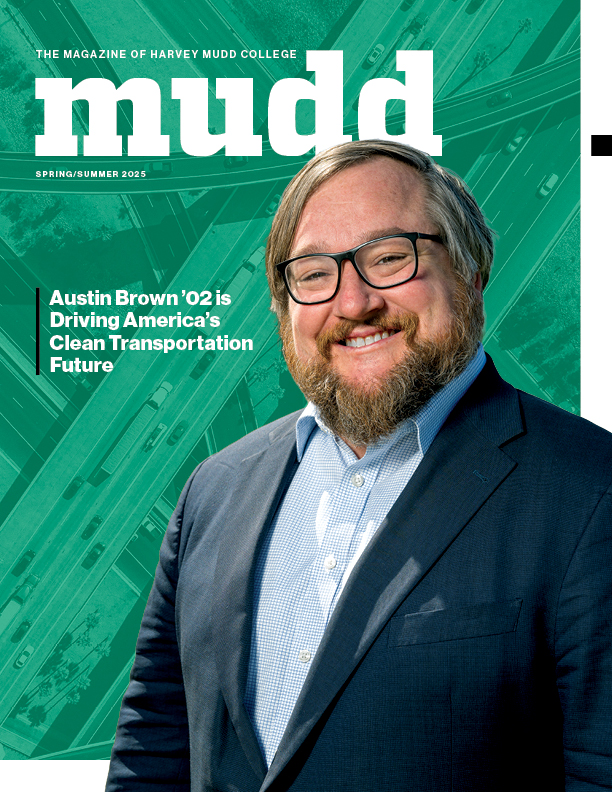Dadabhoy Examines Shakespeare’s Work in New Books
November 13, 2023
The desire to uncover culturally fraught representations of difference, including gender, race and religion, is at the heart of the teaching and research of Harvey Mudd College literature professor Ambereen Dadabhoy. In two very different books—Anti-Racist Shakespeare and Shakespeare Through Islamic Worlds—Dadabhoy uses the work of William Shakespeare to explore these ideas.
Anti-racist Shakespeare is available as Open Access on Cambridge Core.
Co-authored with Nedda Mehdizadeh, continuing lecturer in writing programs at UCLA, Anti-Racist Shakespeare (Cambridge University Press, January 2023) argues that Shakespeare’s work is fertile ground with which to cultivate an anti-racist pedagogy. “It’s a practical book for people who want to do anti-racist teaching,” Dadabhoy says. “And even though it’s called Anti-Racist Shakespeare, we tried to write it so that it could be accessible and useful to anyone who wants to approach anti-racist methods of teaching.”
Dadabhoy and Mehdizadeh explain how teaching Shakespeare through a race and anti-racism lens exposes students to the unequal structures of power and domination that are systemically reproduced within society, culture, academic disciplines and classrooms. “The book gives instructors and students ways to do question and intervene in the system through the knowledge that we co-create in the classroom, which then empowers our students to think about these systems of power in their individual projects and other courses,” Dadabhoy says.
“We use many theoretical methods in the book like postcolonial criticism and feminist criticism, but we also tried to be intersectional, so that when we’re thinking about race, we’re also thinking about gender, and we’re also thinking about class, and we’re also thinking about religion,” Dadabhoy says. “For us, there is a benefit for what this does in the classroom. I really see my job as using literature to teach my students how to be critical readers and thinkers of the world around them.”
Shakespeare Through Islamic Worlds (Routledge, 2024), “is based on the fact that Shakespeare doesn’t write about Islam,” Dadabhoy says. “I decided to investigate why not.”
For Shakespeare’s contemporaries, the topic of Islam was a regular feature in theatrical work. “Many of his contemporaries were writing about the Mediterranean and English and European contact with Muslim cultures like the Moroccan Saadian dynasty and the Ottoman Empire. Moors feature quite heavily in a lot of plays in the period.”
Moors also regularly appear in Shakespeare’s plays, but he doesn’t identify them as Muslim. “In The Merchant of Venice, the Prince of Morocco is never identified as a Muslim,” she says. “However, if he’s the Prince of Morocco, he can only be a Muslim. There’s no other option.”
So, if Shakespeare’s work clearly contains Islamic characters and influences, why wasn’t he more explicit about it?
“We don’t deal a lot with authorial intent,” Dadabhoy says, noting that Shakespeare remains a mysterious figure about whom not a lot is known. However, she says, “I think texts reveal the priorities and the ideologies of the culture that is producing them. [In Shakespeare’s time] there are so many anxieties and concerns about increased traffic and trade in the Mediterranean that’s going on and about increased contact with and enslavement of African people. These plays are part of a period where Europe is starting to position itself as white and as Christian, so Shakespeare’s works are participating in that kind of national identity construction in some way.”
One of the main questions that guided Dadabhoy’s research for the book was: why does Shakespeare conjure Islam through metaphor? “If you look up the phrase ‘turning Turk,’ for example, or just even the word Turk, they appear several times as a trope or a metaphor, but the characters aren’t there,” she says. “So, what kind of ideological work is Islam doing for Shakespeare, where he needs the references to these characters for certain reasons, but more broadly the work disengages with the topic?”
Dadabhoy argues that Shakespeare removes Muslims or makes them peripheral or referential because he’s creating a Europe and a ‘globe’ that is free from Islam, racial otherness, and religious otherness. By consigning the diverse cultures of the Islamic regimes that occupied and populated the early modern Mediterranean to the peripheries, Shakespeare constructs a Europe and Mediterranean freed from the presence of non-white, non-European and non-Christian Others, which belied the reality of the world he occupied.
Dadabhoy hopes the book will encourage readers to think about the idea that “just because something isn’t there, doesn’t mean that we can’t look for the traces. It’s important to note that I’m not trying to make Islam relevant by having Shakespeare deal with it. I’m not trying to make Shakespeare a kind of savior to Islam. The book is very much a project where I’m trying to put Muslims back in the places from which they were evacuated by Shakespeare.”
